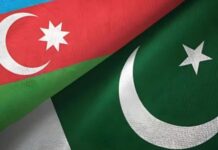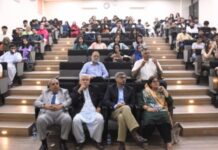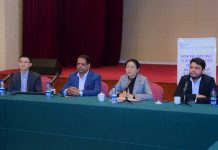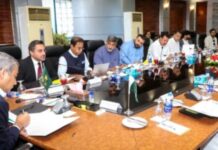ISLAMABAD, Mar 08 (NNI): President Dr Arif Alvi has reiterated Pakistan’s commitment towards women’s socio-economic empowerment and inclusion in all sectors of life and providing them equal opportunities to excel and grow.
On the occasion of International Women’s Day being observed on March 8, the president, in a message, said that Pakistan joined the international community in commemorating the day.
This year’s theme “DigitALL: Innovation and technology for gender equality” reminded them that the digital divide remained a significant obstacle to women’s empowerment and inclusion in today’s fast-paced and ever-changing world, he observed.
The president also called upon all the stakeholders, including governments, NGOs, and particularly women to play their role to address gender disparities.
Governments, banking and the private sector should work together to support efforts for women’s social and economic inclusion through digital means, he stressed.
“Let us pledge to achieve gender equality and work towards creating a more just and equitable world for all through digital technologies,” President Secretariat Press Wing in a press release quoted the president as saying.
Despite women’s important contributions to the digital world, the president said they remained underrepresented in tech education, careers, and governance, but during the COVID-19 pandemic, the number of women using digital technologies had increased.
“Although this is very encouraging; however, we need to accelerate our efforts in improving their access to digital technologies. We must take actions to bridge the digital divide by creating a safer, more inclusive, and equitable digital world for women. I believe that digitalization and technology can play a critical role in promoting gender equality and women’s empowerment in Pakistan,” he added.
The president said the digital technologies could create new opportunities for them to participate in the digital economy and increase their access to education, health, banking, loans, and other essential services.
He opined that they required to increase women’s access to technology and digital literacy programmes, especially in far-flung areas, besides providing them access to internet services, laptops and other digital technologies.
“We should encourage more women to pursue careers in STEM fields and provide them opportunities to gain the necessary skills and training,” he said, adding that it was essential to provide resources and support to women entrepreneurs and business owners, especially those from marginalised communities, to make them financially independent.
In order to empower women, he said, Pakistan had taken a number of economic and legislative measures, including the provision of business loans on easy terms and conditions, and enacting ‘The enforcement of Women’s Property Rights Act 2020’ and ‘The Protection Against Harassment of Women at the Workplace Act 2010.’
Similarly, the State Bank of Pakistan had developed a Gender Mainstreaming Policy that aims to promote women’s financial inclusion in Pakistan and is working to increase women’s ratio in the financial sector to 20%. Other steps taken by Pakistan include a National Policy for the Development and Empowerment of Women, a National Action Plan on Human Rights, Gender Equality Policy Frameworks, and Women’s Empowerment Packages, including the Benazir Income Support Programme. NNI








































